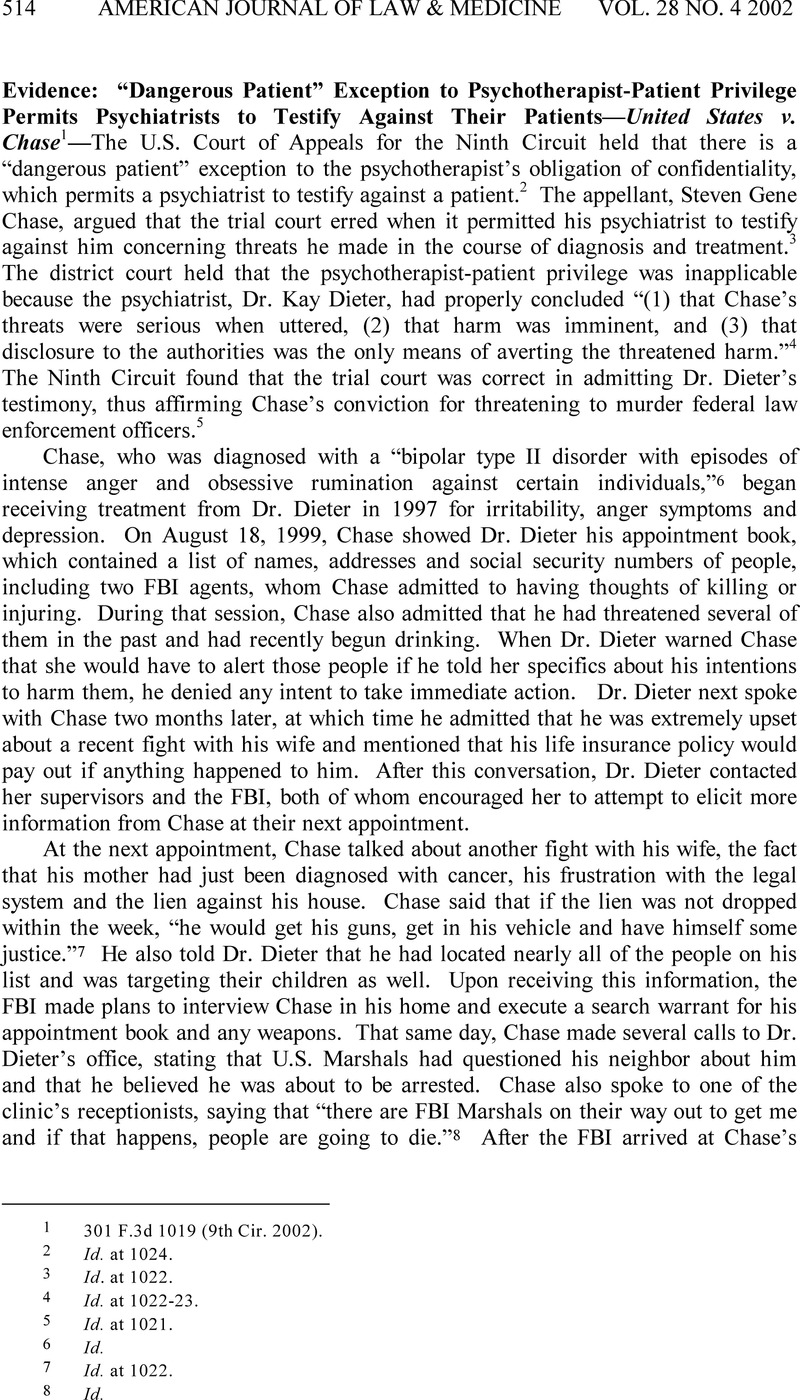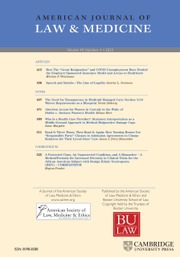No CrossRef data available.
Article contents
Evidence: “Dangerous Patient” Exception to Psychotherapist-Patient Privilege Permits Psychiatrists to Testify Against Their Patients—United States v. Chase
Published online by Cambridge University Press: 06 January 2021
Abstract

- Type
- Recent Developments in Health Law
- Information
- Copyright
- Copyright © American Society of Law, Medicine and Ethics and Boston University 2002
References
1 301 F.3d 1019 (9th Cir. 2002).
2 Id. at 1024.
3 Id. at 1022.
4 Id. at 1022-23.
5 Id. at 1021.
6 Id.
7 Id. at 1022.
8 Id.
9 518 U.S. 1 (1996).
10 Chase, 301 F.3d at 1023.
11 Jaffee, 518 U.S. at 15.
12 Chase, 301 F.3d at 1023.
13 Id. at 1024.
14 Jaffee, 518 U.S. at 18 n.19.
15 Chase, 301 F.3d at 1024.
16 Compare United States v. Glass, 133 F.3d 1356 (10th Cir. 1998) (holding that a “dangerous patient” exception exists for the psychotherapist-patient privilege, which can compel disclosure of communications made to a therapist) with United States v. Hayes, 227 F.3d 578 (6th Cir. 2000) (holding that there is no “dangerous patient” exception to the psychotherapist-patient privilege in criminal proceedings).
17 Hayes, 227 F.3d at 585.
18 Chase, 301 F.3d at 1024.
19 Hayes, 227 F.3d at 588 (Boggs, J., dissenting).
20 Chase, 301 F.3d at 1024.
21 See id.; see also Hayes, 227 F.3d at 584.
22 Chase, 301 F.3d at 1025.
23 Id.


